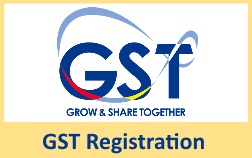Why Businesses Favor the Best GST Registration Services in Singapore
Why Businesses Favor the Best GST Registration Services in Singapore
Blog Article
From Start to Complete: The Ultimate Roadmap to GST Registration for Companies Looking For Financial Stability
Navigating the intricacies of Goods and Solutions Tax (GST) enrollment is a vital action for businesses pursuing financial security. From recognizing the fundamental concepts of GST to complying with post-registration guidelines, the procedure can appear daunting at first glimpse. Damaging down the roadmap right into manageable actions can improve the registration trip for companies looking to improve their economic standing. Allow's discover the necessary parts that compose this best roadmap and discover exactly how each phase adds to laying a strong structure for economic success.
Comprehending GST Fundamentals
Diving right into the fundamental principles of Product and Solutions Tax Obligation (GST) is vital for gaining an extensive understanding of its implications on companies and the economic climate. Input Tax Obligation Credit Report (ITC) is a considerable attribute of GST, enabling companies to declare credit scores for tax obligations paid on inputs, lowering the overall tax problem. Understanding the basics of GST is important for services to conform with tax guidelines, handle their financial resources efficiently, and contribute to the country's economic growth by taking part in a clear tax obligation system.
Qualification Requirements for Registration
To register for GST, businesses have to fulfill particular qualification requirements established by the government. The primary qualification demand is that any company associated with the supply of goods or solutions with an annual aggregate turnover above the threshold limitation set by the authorities should register for GST. Since the existing policies, the threshold limitation for GST registration is an annual accumulation turnover of 40 lakhs for companies operating within a state, with the exception of unique classification states where the limitation is 20 lakhs. Furthermore, certain organizations are needed to register for GST irrespective of their turn over, such as interstate distributors, laid-back taxable individuals, and businesses liable to pay tax obligation under the reverse charge mechanism. It is essential for businesses to completely evaluate their turn over and deal types to determine their GST enrollment commitments precisely. Failure to sign up for GST when eligible can result in charges and legal effects, making it necessary for companies to stick to the defined qualification criteria.
Records Needed for Registration
Having satisfied the eligibility standards for GST registration, organizations should currently guarantee they have the requisite documents in location to proceed with the registration procedure efficiently. The papers required for GST registration normally consist of proof of business constitution, such as partnership deed, registration certificate, or unification certificate for various kinds of services. Furthermore, companies need to give papers establishing the major area of business, such as a rental agreement or electricity expense.
Step-by-Step Enrollment Refine
Starting the GST registration process entails a collection of structured steps to make certain a compliant and smooth registration for services. The initial step is to go to the GST site and fill in the registration kind with accurate details of the service entity. Following this, the candidate obtains a Temporary Recommendation Number (TRN) which is used to return to the application process if it's not finished in one go.
Following, all required files as per the checklist given by the GST portal requirement to be uploaded. These records commonly include evidence of business registration, identification and address proofs of marketers, monetary declarations, and organization entity's frying pan card.

Post-Registration Compliance Guidelines

Conclusion
In final thought, organizations seeking monetary security should comprehend the fundamentals of GST, meet eligibility requirements, collect necessary files, comply with the step-by-step enrollment process, and conform with post-registration guidelines - Best GST registration services in Singapore. By sticking to these browse around here steps, businesses can guarantee compliance with tax obligation regulations and keep financial stability in the future
Additionally, specific services are required to register for GST irrespective of their turnover, such as interstate providers, casual taxable individuals, and services liable to pay tax under the reverse charge system.Having fulfilled the qualification standards for GST enrollment, companies have to currently guarantee they have the requisite documents in place to proceed with the registration process efficiently. The records required for GST enrollment usually consist of proof of company constitution, such as partnership deed, registration certification, or unification certification for various types of services. In addition, organizations require to provide documents establishing the primary place of organization, such as a rental agreement or electrical power bill.Beginning the GST registration process includes a series of structured steps to ensure a certified and smooth registration for companies.
Report this page